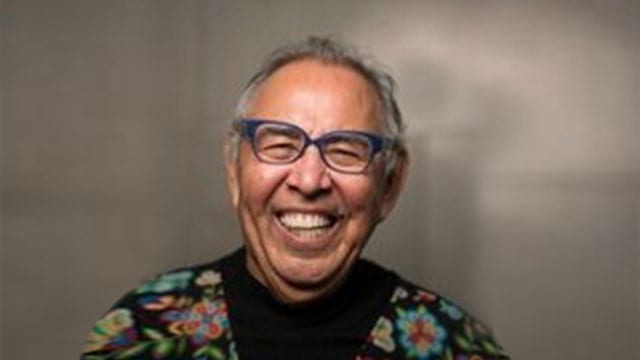
Three major changes proposed to the Indian day school settlement agreement Monday go a long way towards silencing the critics, says an Indigenous lawyer.
“That’s what I wanted,” Ken Young said as he heard plaintiffs’ lawyer Mary Thomson rhyme off the amendments in Winnipeg’s federal court.
Young was prepared to speak against the multi-billion-dollar agreement Ottawa is offering an estimated 140,000 former Indian day school students.
Instead he sat back and smiled as Thomson of Gowling WLG suggested extending the opt-out period to 90 days from 60, expanding the application period to 2 1/2 years from one, and prohibiting form fillers from profiting from claimants.
Thomson told Justice Michael Phelan the amendments show Gowling is taking opponents’ criticism seriously.
The three-day hearing to approve the settlement agreement began almost an hour late as court staff dealt with a crush of people wanting to look on.
A large crowd quickly filled the gallery and an overflow room, with people eventually directed to a downtown hotel to watch the proceedings on a big screen.
Phelan is being asked to approve a multi-billion-dollar agreement to compensate former students offered by Crown-Indigenous Relations Minister Carolyn Bennett.
IRSSA
The deal recognizes students left out of the Indian Residential Schools Settlement Agreement (IRSSA).
Phelan told the packed gallery he understood the personal toll the loss of culture, language and identity inflicted on survivors.
He also acknowledged the effects of physical and sexual abuse perpetrated by school staff as “soul-damaging” breaches of trust against children.
The schools began operating in 1920.
Former students would receive between $10,000 and $200,000 in compensation depending on their claims.
Thomson said this settlement differs significantly from IRSSA so as not to repeat the mistakes of its “destructive” Independent Assessment Process (IAP).
Several plaintiffs urged Phelan to approve the deal.
Ray Mason of Manitoba said he supported the settlement because it validated and supported former students.
“This will restore our dignity,” the Elder from Peguis Cree Nation said. “It is nothing but good for our people.”
Mariette Buckshot of Kitigan Zibi Algonquin Nation in Quebec said her 86-year-old father was psychologically damaged by his time in day school.
“This will bring people like my dad to peace,” she said. “The doors are being closed to the hurt.”
Opting out
Survivors can defeat the settlement agreement by opting out – although no time period has yet been set for that part of the process.
Thomson said already 65,550 survivors have applied and another 7,000 claim forms are ready to be processed.
Only one law firm – Gowling – would provide all the services to former students at no cost unlike the IRSSA process. It would work with Deloitte as the claims administrator and connect with survivors via a call centre.
The call centre would make interpreters available in a variety of Indigenous languages, court was told.
Phelan wondered whether Canada would pursue criminal charges against alleged perpetrators identified by claimants.
Catharine Moore said No, noting it would be up to claimants to turn their evidence over to police.
Law Society
The Law Society of Manitoba also weighed in on the agreement.
Leah Kosokowsky, the director of regulation, said in an affidavit shared with the court she was speaking for law societies in Yukon, Alberta, Saskatchewan, Ontario and Manitoba.
She praised the deal’s “stream-lined approach” to determine compensation and the “pre-established grid” for harms.
“There are to be no hearings of any kind and there also appear to be instructions to the administrator to process a claim based upon the assumption that the claimant is acting in good faith,” she wrote.
Kosokowsky also liked the option of claimants using a different lawyer at their own cost but not without prior approval of the court.
This helps protect former day school students from unscrupulous lawyers and form-fillers like those who took advantage of residential school survivors.
Lastly, the hearing wouldn’t be complete without invoking the memory of Garry McLean – the Manitoba day school survivor who launched the initial $15-billion class-action suit against Canada.
McLean died in February but his memory and spirit seemed very much alive in court Monday.
His sister Delma Mclean said it was her brother’s last wish to obtain recognition and compensation for survivors like him.
“I would like to see his life-long dream become a reality,” she told the court.
The hearing continues through to Wednesday.










